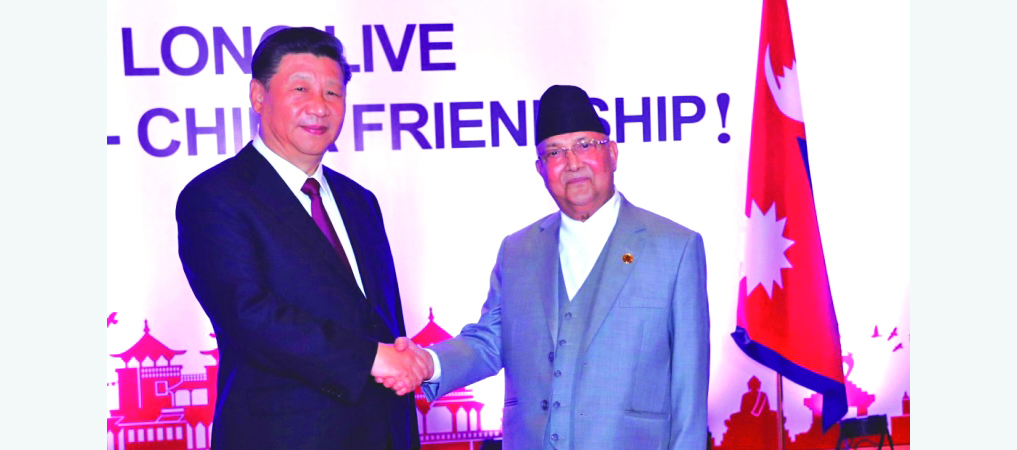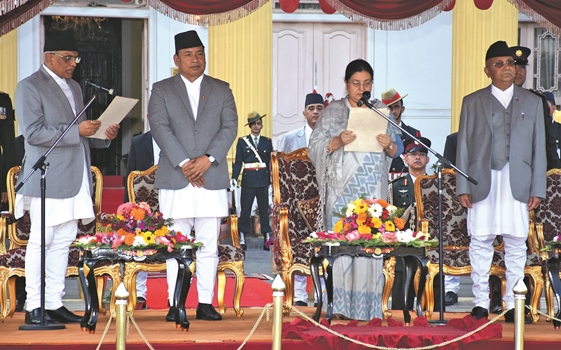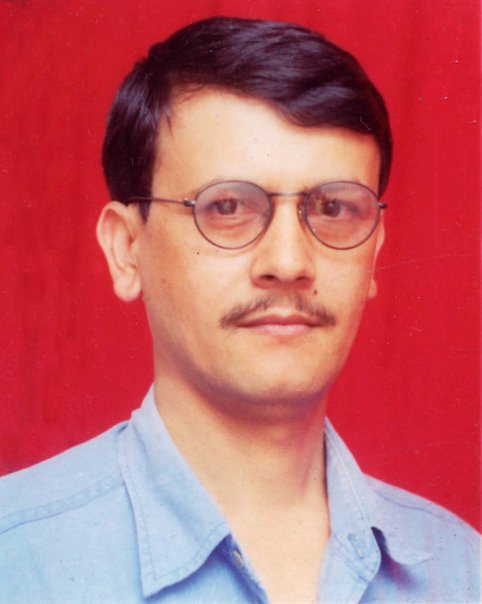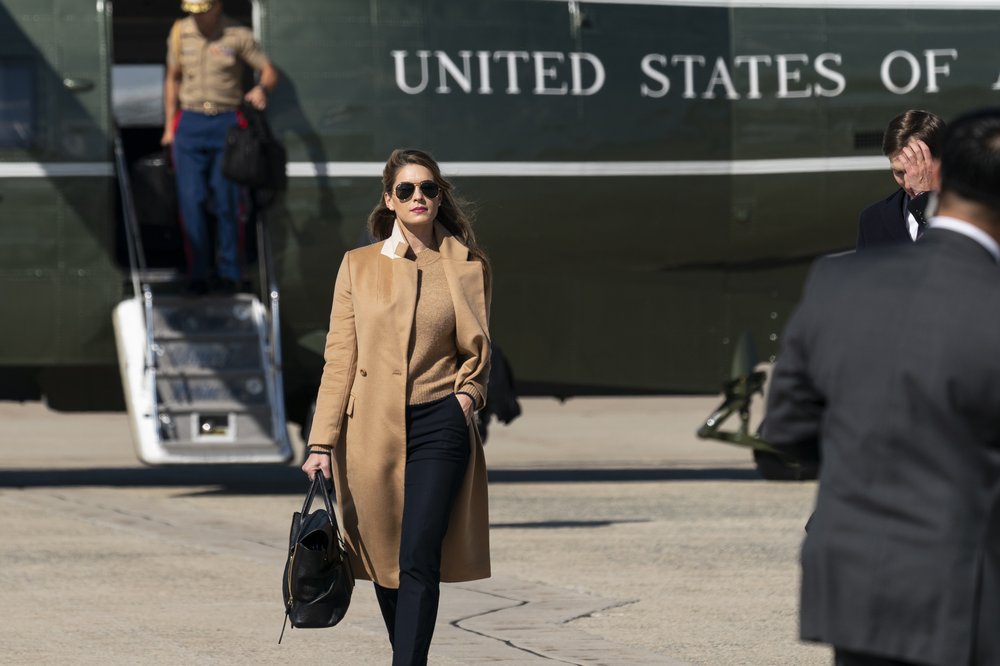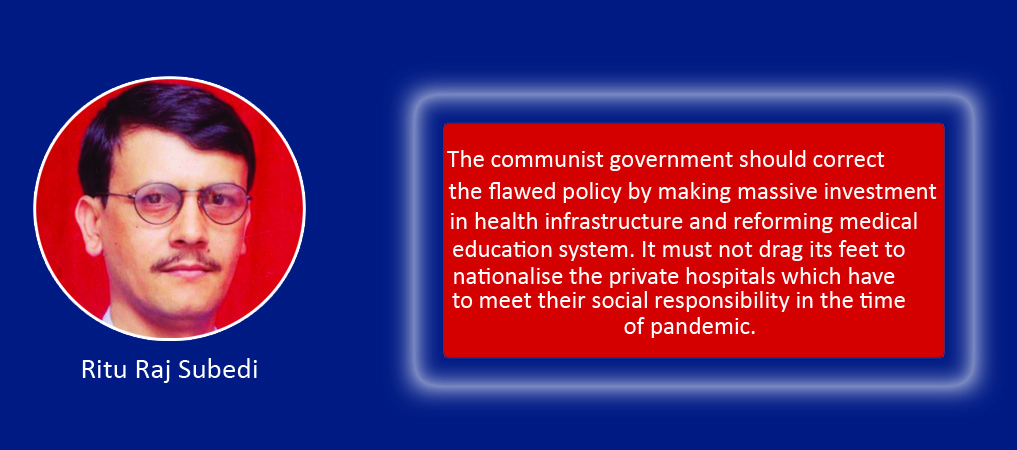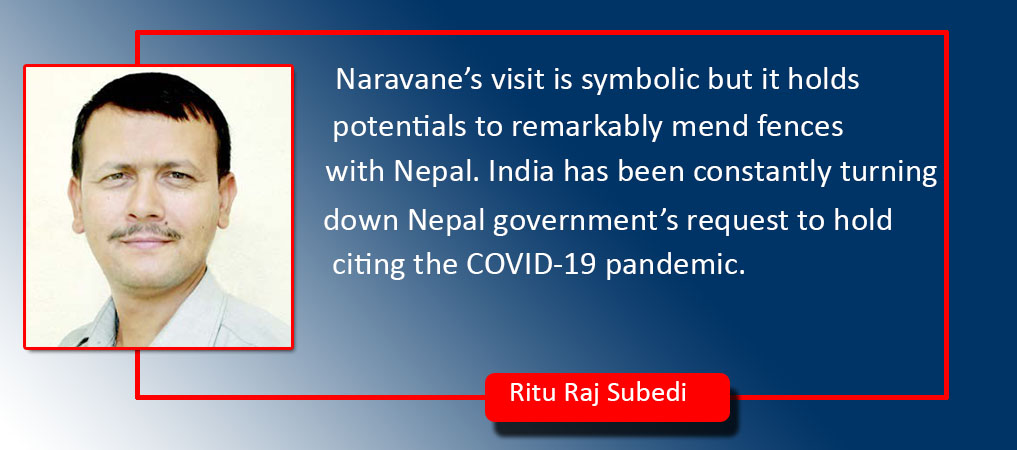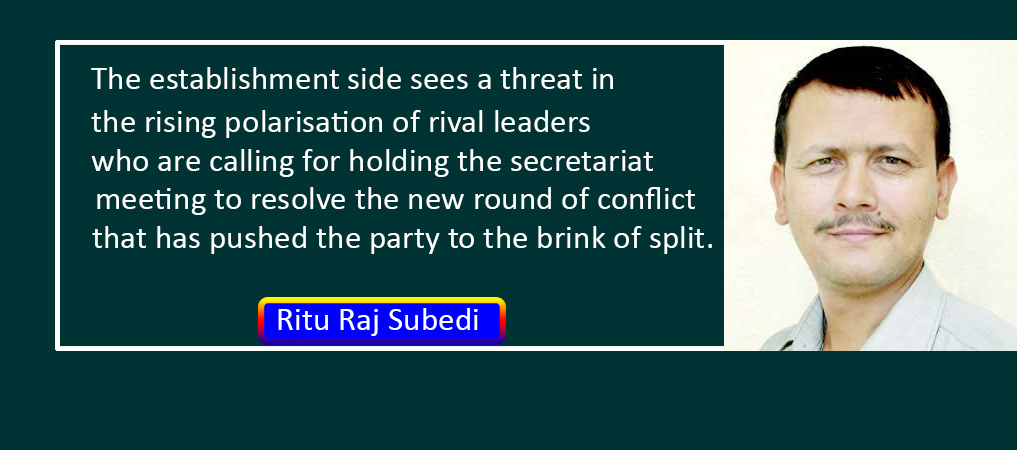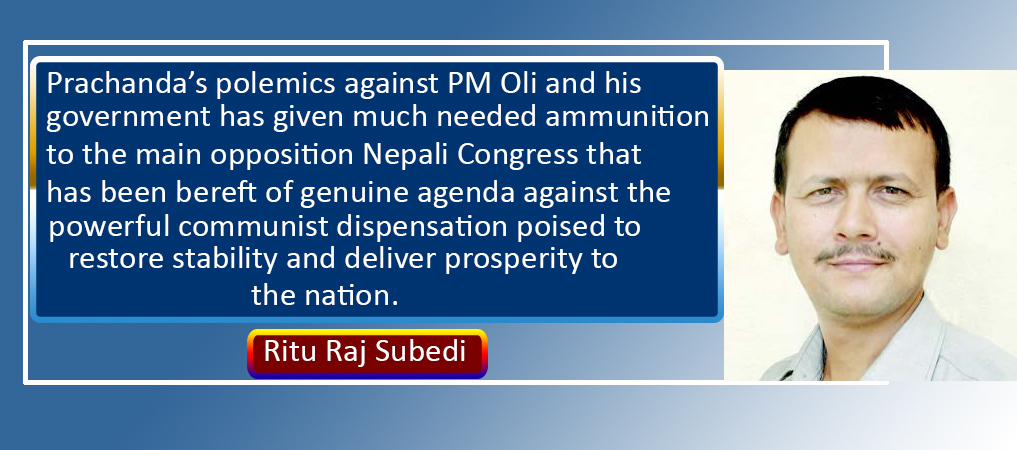Is NCP Ready For Leadership Transfer?

Ritu Raj Subedi
The intra-party rift with ruling Nepal Communist Party (NCP) is dramatically heading to a climax. Various bizarre predictions and narratives have been floated to portray the destiny of the largest political force mandated to govern the country with solid majority. The toxic infighting has torn the spirit of party’s unity asunder as manifested in the filthy blame game involving the factional leaders and their loyalists. A powerful faction, led by chairman Pushpa Kamal Dahal Prachanda and senior leaders Madhav Kumar Nepal, is determined to inflict retribution on Prime Minister and chairman KP Sharma Oli for allegedly undermining the party’s norms and system while running the government. For this, Oli’s nemeses want him to quit one of two posts. Oli has already announced that he would not stake claim to the posts of chairman and premiership second time. Ironically, Prachanda and Co are baying for Oli’s blood just four months before the unity convention slated in April next year.
Ideological confusion
The bitter conflict is raging on amidst the ideological confusion. The NCP now lacks a common ideology and tactical line to glue the party functionaries and expand the organisational base. So the current squabble is laced with multiple vested interests and irrational personal rivalry. The leaders are divided on procedural methods to iron out the difference. Oli faction insists that the intra-party dispute should be resolved on the basis of consensus until it holds the unity convention. He went on to say that since present party committees from centre to ward level are provisional, resorting to consensus Vs. majoritarian approach weakens the process of integration among the cadres who came from different schooling. On the other hand, the Prachanda-Nepal faction is for authorising respective committees to decide the matter based on the majoritarian process since the two chairs failed to strike a credible consensus to end the crisis.
On Friday morning, Deputy Prime Minister Ishwor Pokharel called on Prachanda and stated that the ongoing impasse could be solved only when the two chairs moved ahead forging consensus. Pokharel, also a secretariat member, even conveyed Oli’s message that the latter was ready to allow Prachanda to exercise full-fledged executive rights but Prachanda rejected his proposal outright and made it clear that it was beyond his ability to find a solution as the political documents of both chairs have formally entered the secretariat meeting for debate and deliberation. He stressed resolving the impasse through committee-level decision as the consensus formula came to naught. Much to the chagrin of Oli faction, Prachanda-Nepal faction wants to seal Oli’s fate through their majoritarian muscle that it flexes virtually in all wings – secretariat, standing committee, politburo and central committee. It seems that Oli’s failure to take his own comrades into confidence is now posing the biggest challenge to his leadership and political career.
Political parties – be it conservative, democratic or communist – all follow the Leninist principle to operate their organisation. It is ‘democratic centralism’ in which the parties rigorously discuss all issues in question and arrive at a conclusion applying either of two methods – consensus or majoritarianism. But, once they take a decision, all party members are bound to stick to the party’s decision until further decision is taken.
However, the parties have undergone a sea change in their style of operation over the decades. But one key premise – democratic procedure – stands valid to date. Inner-party democracy promotes the culture of listening and enhances the participation of cadres in the decision-making process. When their genuine concerns and grudges are heard and addressed, it also contributes to democratise the society and minimise the risks posed by the extremist forces that rear their heads when the system fails to deliver.
Tested leaders
Despite being the largest communist party of South Asia, the NCP suffers from democratic deficit and intergenerational gap. As its lower committees are dysfunctional, the party’s functionaries hesitate to own up the government policy and programmes on the ground. This is one reason behind the lacklustre performance of the strong government. Similarly, the party is bearing the burden of tried and tested leaders who still jockeying for power and post.
Political parties are globally losing their lustre owing to the intergenerational gap that halts the entry of fresh blood into the party system and organisation. This also applies to the NCP. The 9-member secretariat, party’s powerful wing, is full of gerontocrats, who are now unable to solve the intra-party quarrel and reenergise the party. Against this backdrop, Oli’s proposal to hand over the leadership mantle to second generation leaders is not only euphonious but also rational. If it was floated with good intention, seeking to ride out the storm, this will be a big democratic leap in the transformation of party. If it simply happens to be a red herring to distract the rival leaders, it will further widen rift and complicate the efforts to find win-win solution.
(Deputy Executive Editor of The Rising Nepal, Subedi writes regularly on politics, foreign affairs and other contemporary issues. subedirituraj@yahoo.com)
Recent News

Do not make expressions casting dout on election: EC
14 Apr, 2022
CM Bhatta says may New Year 2079 BS inspire positive thinking
14 Apr, 2022
Three new cases, 44 recoveries in 24 hours
14 Apr, 2022
689 climbers of 84 teams so far acquire permits for climbing various peaks this spring season
14 Apr, 2022
How the rising cost of living crisis is impacting Nepal
14 Apr, 2022
US military confirms an interstellar meteor collided with Earth
14 Apr, 2022
Valneva Covid vaccine approved for use in UK
14 Apr, 2022
Chair Prachanda highlights need of unity among Maoist, Communist forces
14 Apr, 2022
Ranbir Kapoor and Alia Bhatt: Bollywood toasts star couple on wedding
14 Apr, 2022
President Bhandari confers decorations (Photo Feature)
14 Apr, 2022



